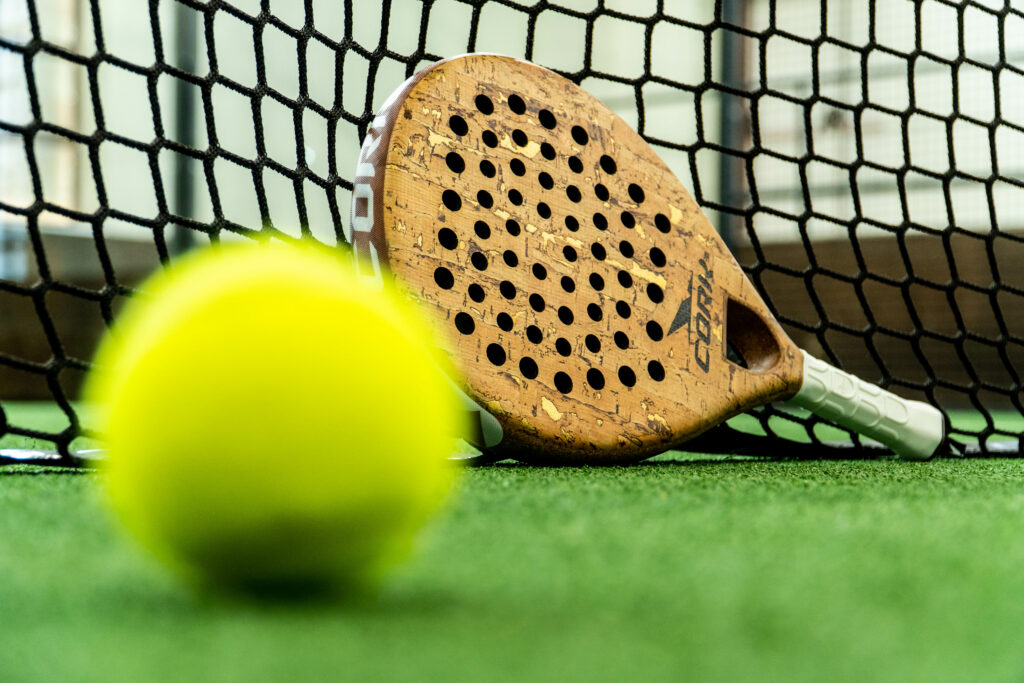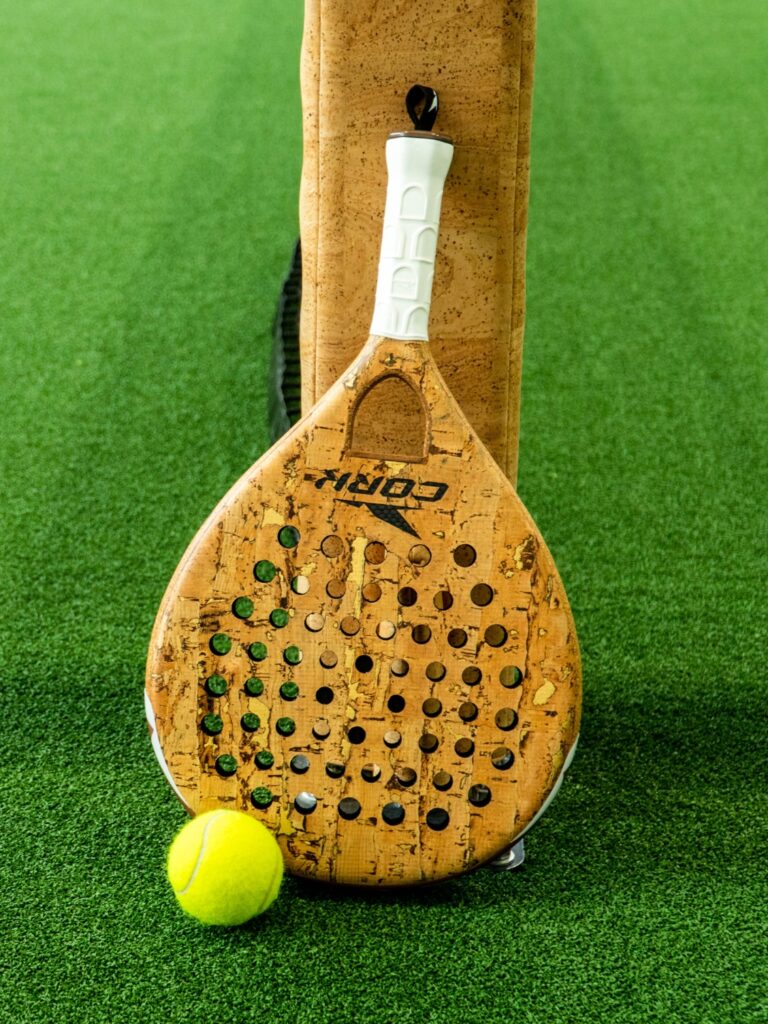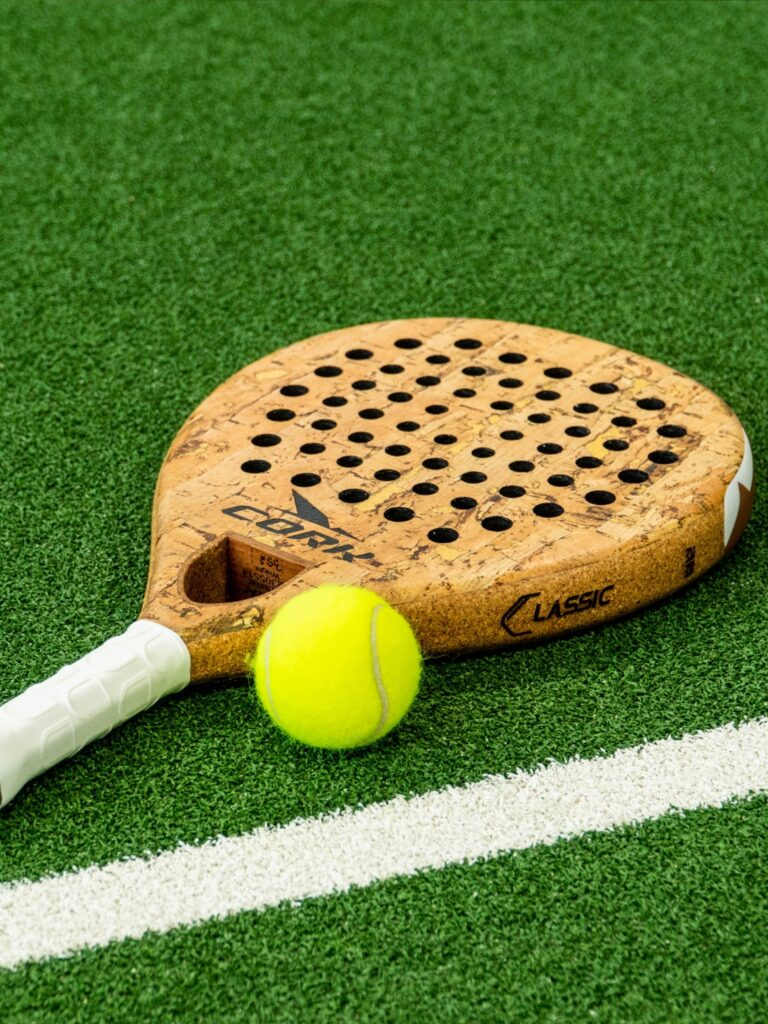With cork at its core and Portuguese design as its foundation, Cork Padel redefines the padel racket through precision, intention, and identity.
In a quiet corner near Fátima, between olive groves and industry, a different kind of sporting object is being shaped. At first glance, the rackets made by Cork Padel don’t seek attention. Their surfaces are matte, their palette restrained, their form precise. But held in the hand — and in motion — they reveal their intent: to perform with clarity, to last with grace, and to speak, without excess, of where they come from.
Founded in 2016 by Ricardo Correia, Cork Padel began not as a business proposition, but as a response. A search for an alternative to mass-produced, anonymous equipment — one that could reflect the values of care, utility, and Portuguese identity. Correia turned to cork, a material long embedded in the country’s landscape and culture. Renewable, tactile, and resilient, cork offered more than a national symbol. It offered a possibility: to make performance quieter, more precise, and more rooted.
At the centre of Cork Padel’s practice is a deep attention to materials. The rackets are built using layers of cork, carbon fibre, and other advanced composites, chosen not for effect but for how they behave. Cork absorbs vibration, softens impact, and creates a distinct feel during play — a quietness of contact that reveals itself over time. The result is a racket that does not impose, but responds. It listens.



Each piece is made entirely in Portugal, through a process that combines artisanal sensibility with technological rigour. The approach is deliberate — a blend of hand-finishing and mechanical precision that respects the materials at every stage. Sustainability is not a feature, but a foundation: cork is harvested without cutting down trees, and more than 80% of the materials used are recyclable. This ethic of care — towards the object, the player, and the land — is what defines the brand’s vision.
Yet the technical sophistication of these rackets is not lost on those who play at the highest level. Over the past few years, Cork Padel has earned a place on courts around the world — quietly, but confidently — through the hands of top-level athletes. Professionals across continents now compete with these rackets, drawn not by fashion but by performance: their precision, comfort, and reliability under pressure. That trust, earned not through marketing but through play, speaks volumes.
The forms are clean. The branding is minimal. There are no loud claims or oversized logos. Cork Padel designs for the thoughtful player — one who values intuition over trend, and experience over excess. It’s a philosophy that has found quiet resonance. The rackets have been photographed in the hands of figures such as Cristiano Ronaldo — not as a gesture of branding, but as a reflection of quiet excellence made visible.
The words that guide the brand — qualidade, inovação, orgulho nacional — are not treated as slogans. They are held more softly, as intentions. To innovate without noise. To craft with conviction. To remain close to origin. In this, Cork Padel is part of a broader lineage of Portuguese design: one that moves forward by going deeper into what is already here — the land, the material, the tradition of doing things well.
Cork Padel is featured on THE PORTUGUESE LIST not just for what it creates, but for the way it holds space between purpose and presence. It reminds us that performance can be quiet. That design can be honest. And that even in the rhythm of sport, there is room for stillness — for an object that returns us, gently, to where it was made.
